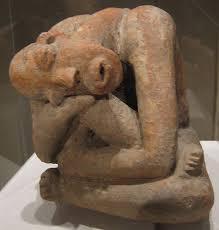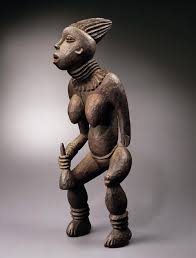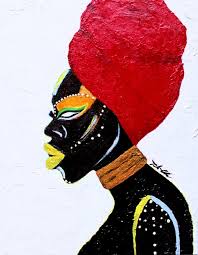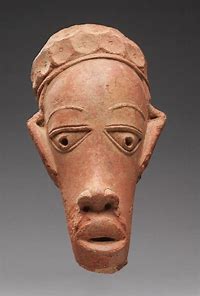Millions of Britons given Indian-made AstraZeneca doses ‘could be excluded from EU vaccine passport scheme’











Millions of Britons given Indian-made AstraZeneca doses ‘could be excluded from EU vaccine passport scheme’
Millions of Britons could be shut out of European holidays because some AstraZeneca jabs are not automatically recognised by the EU vaccine passport scheme, it was reported on Friday.
The new EU Covid certificate, designed to open up travel for those immunised against the virus, does not include batches of the vaccine produced in India because they have not been approved by the European Medicines Agency (EMA).
The UK is among many countries to have approved the so-called Covishield version of the AZ jab, made by the Serum Institute of India. It is chemically identical to the original AZ version.
Up to 5 million Indian-made doses have been administered in the UK, the Daily Telegraph reported, identifiable by their batch numbers as shown on patients’ card or in the NHS app.
Those Britons could be turned away at EU border crossings, the newspaper said.
Many other countries – including India itself – are also affected because the Indian-made version accounts for the majority of AZ doses supplied to poorer nations as part of the Covax vaccine-sharing scheme.
However, EU member states may accept non-EMA-approved vaccines if they wish.
Germany and Spain are among nine EU members who have told India they will accept the Covishield version, Indian foreign ministry sources told Associated Press.
The EMA said on Thursday it has not received any application for authorisation of Covishield, the version of AstraZeneca’s vaccine made by the Serum Institute of India
Reference: Independent: Alastair Jamieson
80% of hospitalized COVID patients develop a neurological condition













80% of hospitalized COVID patients develop a neurological condition
A majority of hospitalized COVID-19 patients develop neurological problems, a new study suggests.
Researchers from the University of Pittsburgh surveyed thousands of former COVID-19 patients from around the world on symptoms they were experiencing post-hospitalization.
They found that 80 percent developed conditions such as being in a coma, suffering a stroke or even damage to the brain.
What's more, this group of hospitalized patients were six times more likely to die because than hospitalized patients without neurological problems.
For the study, published in JAMA Network Open, the team surveyed 3,744 people COVID-19 patients aged 18 and older.
The participants self reported any potential issues they were facing that could be side-effects of a neurological condition.
Eight in 10 patients had at least one of the conditions or reported some sort of side-effects - with some being found to have multiple.
A total of 37 percent reported frequent headaches and 26 percent reported either a loss of taste or smell.
Nearly half, 49 percent, of participants were found to have acute encephalopathy, a condition that alters someone's brain structure.
Going into a coma, 17 percent, or experiencing a stroke (6 percent) were common conditions as well.
'We expected there'd be some, but that was a lot,' said Dt Sherry Chou, lead author of the study, professor at the University of Pittsburg, said in a press release.
'These are people who are confused, who are delirious, who are not themselves.'
'They have altered sensorium, memory problems, and about every other person hospitalized with COVID-19 had that condition.'
Researchers are still unsure how COVID-19 manifests in this way, and why it can cause so many conditions in so many parts of the body.
Separate from neurological issues, some people develop myocarditis, heart inflammation, after having the virus.
Others even end up bed-ridden for as long as a year with a condition called 'long-haul COVID', where they experience incredible fatigue and other symptoms of the virus long term.
More than 33.6 million Americans have contracted the virus since the pandemic began in spring 2020.
While a vast majority have recovered, finding out what the virus did to the bodies of the people it infected will be a challenge for the scientific community in the years to come.
Chou says that, in the future, she hopes to conduct research that answer how long neurological symptoms last in COVID-19 patients and what are the long-term effects.
'And the key question is: "How do we treat it?'" she said.
Reference: Daily Mail: Mansur Shaheen For Dailymail.Com
Trapped nerves giving you grief? Here’s what a leading pain expert advises













Trapped nerves giving you grief? Here’s what a leading pain expert advises
Whether it’s sharp and sudden or dull and constant, pain from a trapped nerve is hard to ignore.
While pinched nerves aren’t uncommon, they can cause a major amount of discomfort, leading to sleepless nights and misery while performing even the simplest of everyday activities.
Often, the first step in getting relief from any kind of pain is identifying the source, and making sure a trapped nerve really is to blame. So if your symptoms are severe or ongoing, it’s a good idea to get them checked by a doctor or physio.
To find out more, we spoke to leading UK pain expert Dr Anthony Ordman (dranthonyordman.co.uk), who founded the Royal Free Hospital’s pain management clinic in London.
What are trapped nerves and why do they happen?
Pinched or trapped nerves are thought to occur when pressure is put on an area of a nerve, causing it to send warning signals to the brain. Ordman says they can appear in many different areas of the body, as the compression is caused by surrounding tissues, such as bones, cartilage or tendons.
“The most common examples include the neck, where the pain goes over the shoulder, down the arm and sometimes into the hand, or from the lumbar spine where the pain travels the leg – which is is what we commonly refer to as sciatica,” says Ordman.
“Other examples include pudendal nerve pain in the pelvis, which happens when the nerve is pinched by two ligaments or squashed by a bike saddle, causing intense pain in the groin.”
What are the symptoms of a trapped nerve?
Sometimes, pain might be your only symptom, although you could experience other warning signs too.
As Ordman notes: “The nerve pain itself can feel like a sensation of intense pressure or burning, and it may feel like tiny electric shocks or tingling. At the same time, you can also experience numbness in the region of the nerve, which is a strange and contradictory sensation all at once.”
The discomfort happens, Ordman says, because the nerve is being squashed, so it sends the brain a message, which it interprets as pain. There may also be a feeling of muscle weakness in the affected area.
How is nerve pain treated?
If you’re suffering with a trapped nerve, rest assured that most cases go away on their own, and often quite quickly in a couple of days. “In the case of neck and lumbar spine pain, changing your posture and visiting a good physiotherapist may be enough,” says Ordman.
Alternating between applying a heat and ice pack can help you to find relief – but make sure to wrap them in a towel before applying directly to your skin. Massage therapy, through the use of a handheld massage tool, can help to stimulate circulation in the affected area and bring soothing benefits.
“Sometimes anti-inflammatory drugs such as ibuprofen can help, but they shouldn’t be taken long term. Painkillers such as paracetamol are not particularly helpful with nerve pain,” Ordman adds.
Understand your "pinched nerve" with this cheat sheet. #physiotherapy #perfectbounce #dryNeedling #pinchedNerve #sciatica pic.twitter.com/eYOVqI50d6
— Perfect Bounce (@rxperfectbounce) October 22, 2018
“There are specific medicines to treat nerve pain, including gabapentin, amitriptyline and pregabalin, but these drugs will only help one person in around four, and they usually have side-effects, such as sedation and memory issues or brain fog.”
You will need to speak to your doctor about these types of medicines, to ensure they are suitable and side-effects are monitored. Ordman adds that pregabalin can be very addictive too, so should be prescribed in a controlled way.
“Newly available medicines, such as medical cannabis, are being increasingly turned to, and they can be very useful in treating the symptoms of nerve pain,” says Ordman.
Treatment will often depend on the severity of symptoms and their underlying cause, and more extreme measures – like surgery – are usually a last resort, when more conservative measures have not worked. “Sometimes surgery is needed to save a slipped disk, or doctors can inject steroids around the pinched nerve, but such treatments are not available to everyone,” says Ordman.
Is it ever serious or something to be concerned about?
Ordman says trapped nerve pain generally isn’t serious, but it can be. “Nerve pain can be very distressing and it can also restrict freedom of movement and sleep too. Occasionally it can be very serious, where the nerve supply to the bladder or legs might become compressed, which could lead to problems emptying the bladder, or disfunction and weakness of the legs. In this situation, urgent surgery would be required,” he explains.
Are there any measures we can take to prevent it?
As with most health issues, self-care and living a healthy lifestyle is often key to prevention. Ordman says maintaining a good posture (such as avoiding crossing your legs for too long), incorporating strength and flexibility movements into your routine, and taking breaks from repetitive activities can all help to keep your nerves pain-free in the long run.
However, you should speak to a doctor if your pinched nerve symptoms last for several days and haven’t responded to rest and painkillers.
Reference: Independent: Liz Connor
Mother, 47, dies after AstraZeneca Covid jab caused blood clots












Mother, 47, dies after AstraZeneca Covid jab caused blood clots
A mother-of-three has died after suffering a rare catastrophic reaction to the AstraZeneca coronavirus jab, her family has said.
Lucy Taberer, 47, fell seriously ill after getting the jab and developed blood clots in her brain which caused a stroke.
Her heartbroken fiance, Mark Tomlin, from Aylestone in Leicester, has since spoken about the devastating impact her death has had on the family including the couple's five-year-old son Orson.
He said Lucy, a playgroup leader who had no known health conditions, initially experienced mild side effects in the days after she was vaccinated at the Peepul Centre in Belgrave on March 19.
But her condition gradually worsened, causing her to be rushed into hospital. Despite best efforts by medics to save her, she died 22 days after being vaccinated.
A post-mortem found the mother had suffered from cerebral venous sinus thrombosis - a rare and deadly type of brain clot.
Mr Tomlin said: 'I don't want people to be put off having a vaccine but I do want people to know that there are risks.
'We're not anti-vax. Lucy certainly wasn't - she was so excited about getting it.'
What is the risk of getting blood clot after AstraZeneca's jab?
In total 389 Britons have suffered blood clotting disorders after receiving the AstraZeneca vaccine, of which 68 died. The NHS has deployed 45million doses of the British-made jab.
Under-40s are being given alternatives to AstraZeneca's vaccine because the conditions seem to be affecting younger people more often.
Speaking about Lucy's experience, Mr Tomlin said: 'She knew there might be some side effects but she wasn't worried. We thought they would just clear up as most people's do.
'That reassured her and she didn't think it was anything to do with the vaccine but things just started to get worse and the panic began.
'She developed a bruise about the size of a tennis ball on her. Normally she had all the energy in the world but she became tired and lethargic.
'Then she got a really bad rash on her face and side. Her gums started to change colour and we got really worried.'
On April 1 - 13 days after her vaccination - Lucy was rushed to the Leicester Royal Infirmary where blood clots were diagnosed.
What is the risk of getting blood clot after AstraZeneca's jab?
Reference: Daily Mail:Raven Saunt For Mailonline
Articles - Most Read
- Home
- LIVER DIS-EASE AND GALL BLADDER DIS-EASE
- Contacts
- African Wholistics - Medicines, Machines and Ignorance
- African Wholistics -The Overlooked Revolution
- African Holistics - Seduced by Ignorance and Research
- The Children of the Sun-3
- Kidney Stones-African Holistic Health
- The Serpent and the RainBow-The Jaguar - 2
- PART ONE: DIS-EASE TREATMENT AND HEALTH-3
- 'Tortured' and shackled pupils freed from Nigerian Islamic school
- King Leopold's Ghost - Introduction
- PART ONE: DIS-EASE TREATMENT AND HEALTH-4
- PART ONE: DIS-EASE TREATMENT AND HEALTH-2
- PART ONE: DIS-EASE TREATMENT AND HEALTH-5
- African Wholistics - Medicine
- Menopause
- The Black Pharaohs Nubian Pharaohs of Ancient Egypt
- The Mystery System
- PART ONE: DIS-EASE TREATMENT AND HEALTH-6
Who's On Line?
We have 103 guests and no members online
Ad Agency Remote
Articles - Latest
- The Male G Spot Is Real—and It's the Secret to an Unbelievable Orgasm
- Herbs for Parasitic Infections
- Vaginal Care - From Pubes to Lubes: 8 Ways to Keep Your Vagina Happy
- 5 Negative Side Effects Of Anal Sex
- Your Herbs and Spices Might Contain Arsenic, Cadmium, and Lead
- Struggling COVID-19 Vaccines From AstraZeneca, BioNTech/Pfizer, Moderna Cut Incidence Of Arterial Thromboses That Cause Heart Attacks, Strokes, British Study Shows
- Cartilage comfort - Natural Solutions
- Stop Overthinking Now: 18 Ways to Control Your Mind Again
- Groundbreaking method profiles gene activity in the living brain
- Top 5 health benefits of quinoa
- Chromolaena odorata - Jackanna Bush
- Quickly Drain You Lymph System Using Theses Simple Techniques to Boost Immunity and Remove Toxins
- Doctors from Nigeria 'facing exploitation' in UK
- Amaranth, callaloo, bayam, chauli
- 9 Impressive Benefits of Horsetail
- Collagen The Age-Defying Secret Of The Stars + Popular Products in 2025
- Sarcopenia With Aging
- How to Travel as a Senior (20 Simple Tips)
- Everything you need to know about mangosteen




